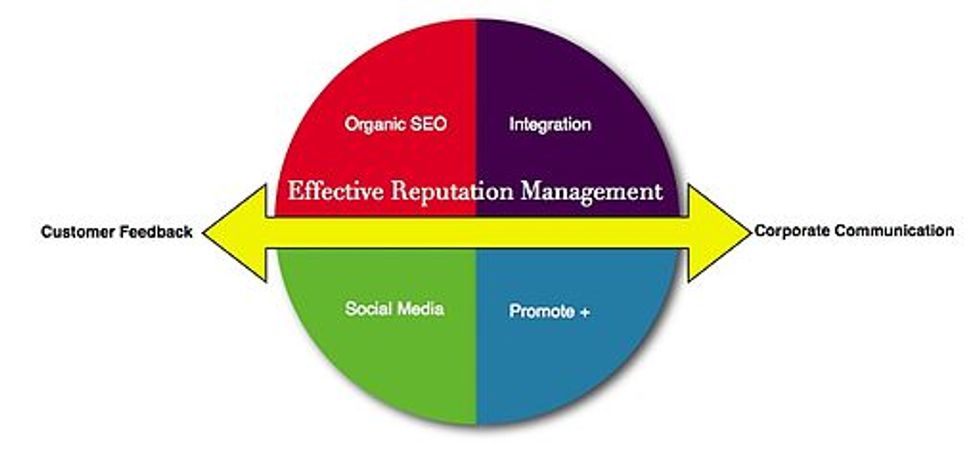
Why Wikipedia Can Be a Dangerous Reputation Management Tool
Reputation management is something that all companies must be prepared to do in order to protect their brand. There are two main areas of reputation management. The first involves getting out in front of any negative publicity and the other is trying to recover once something negative about your company goes public. The latter is the most common as many companies are simply not willing to step up and admit a mistake prior to a whistleblower taking the information public. As such, they suffer the consequences and must play catch up in order to protect their reputations.
Through my years as a professional Wikipedia editor, I am often contacted by companies who in some way are looking to use Wikipedia as a reputation management tool. My advice to them 99% of the time is to simply walk away and pray that a Wikipedia page about their company is never created. To help understand the effect that Wikipedia can have on reputation management, it is helpful to understand that one of the most common goals of reputation management is to push any negative content that shows up on the first page of Google results to the second page and beyond. After all, the click thru rate for page two results on Google is less than 2%. Logically, you can reduce the effects of negative information about your company by 98% if you can push the negative content to the second page. This is where reputation management companies make their money.
The bulk of revenue for reputation management companies involves pushing negative content to the 2nd page of Google. There are various methods used to do so, but the most common involves article writing. Well-written articles strategically placed on different websites and optimized with the correct keywords will cause the articles to rise to page one in Google. Once those articles move up to page one, the negative content will be pushed to the bottom and more than likely to the 2nd or 3rd page of Google. The articles written by reputation management companies contain positive or neutral information about the company they are writing for so that anyone who clicks on the article will not be led to the negative press that previously showed up on the 1st page.
When conducting research on reputation management, companies always come across my favorite statistic about Wikipedia – Wikipedia Appears on Page 1 of Google for 99% of Searches. This, according to a study reported by the website Search Engine Watch, shows how much Google loves Wikipedia. Every Wikipedia page that I have ever created has been ranked on page one in less than a week after its creation. Google is said to index new Wikipedia articles every 72 hours; however, many articles that I write wind up on page one in less than 24 hours and some have showed up within an hour. This is a dream for anyone looking to get something positive on page one of Google. Simply create a Wikipedia page about your company and it will rise to the 1st page, pushing down negative content. Hold up! Not so fast!
Using Wikipedia for reputation management can turn out to be a thorn for many and here is why. Once a Wikipedia page is created, it is unlikely to ever be deleted as long as it meets notability guidelines. This means that once your page is created, it will be there forever. If you are not already familiar with how Wikipedia works, it is an open community of editors where anyone can edit; you don’t even need an account. So, even if you have the most gleaming positive article in Wikipedia now, that doesn’t mean that what you wrote will stay there forever. Editors can come along and introduce and/or change information in the article as long as there is a reliable source to back up the edit they performed.
There has always been a debate about the power of Wikipedia backlinks. The links are no-follow links, but seem to have a powerful effect on SEO. With that in mind, sites that are linked from Wikipedia tend to rank higher for the specific page linked. Now is where your reputation management efforts will be completely erased and here is why……Once your article is created in Wikipedia, there is a likelihood that someone will come along and introduce the same negative content into the article that you have successfully pushed to the 2nd page of search results. As editors need a reliable source to back up the content they introduce, the same sources that you pushed to page two of Google will likely be used as the supporting source. The effect of these links being in Wikipedia will help bring the negative articles back to page one or at least slightly higher than they already are.
So, in addition to having negative content in your Wikipedia article (the same content you successfully pushed to page two in Google), the Wikipedia article will hit high on page one where everyone can view the negative content. You will also bring back all the negative articles that you pushed out of the 1st page results, basically erasing any reputation management efforts that you previously engaged in. In the end, you will be in worse shape than when you started, which is why Wikipedia should never be used as a reputation management tool.




